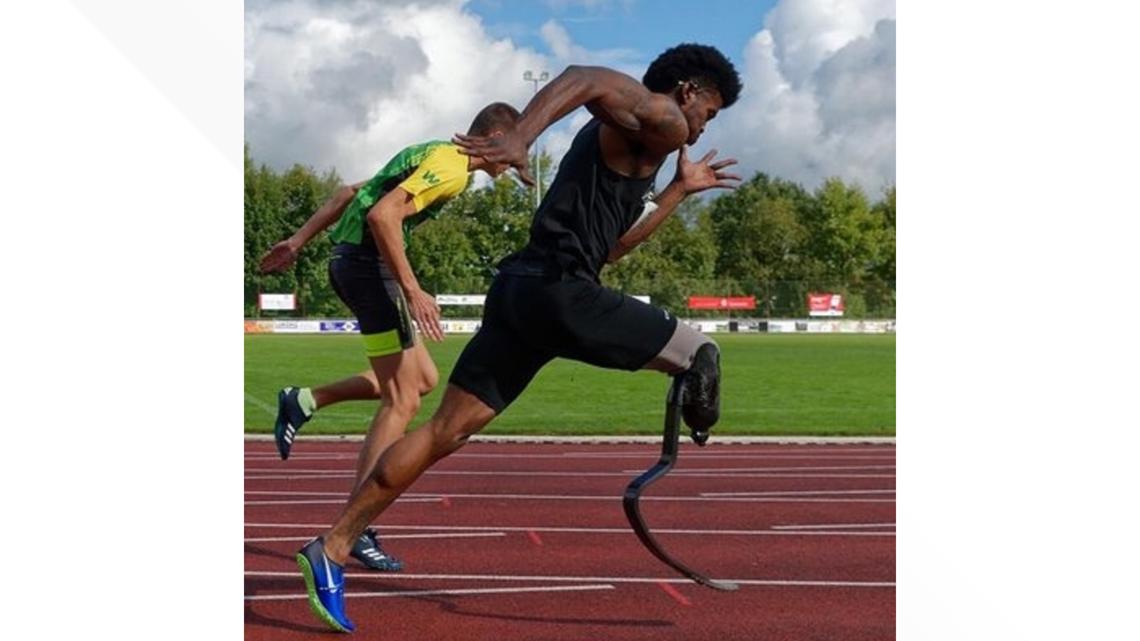BEAVERTON, Ore. — On a rainy day in Mississippi when he was just 16 years old, Richard Browne's life changed forever. He was jumping out of the rain into the front doorway of a laundromat when his feet slipped out and he crashed into a plate glass window. The glass pierced his right leg and severed his tibial artery. After over a dozen surgeries over the next couple years, he made what he called an easy decision to have his leg amputated below the knee.
"I go to get it cut off and it was like the best day ever, because I woke up in no pain," he said.
Within six months after the surgery, he started running and found out he was pretty good at it. He won his first race and continued to win in almost every race he ran. The U.S. Paralympic national team took notice, and he made the team after winning first professional match. At the age of 21, he ran in the 100 meter sprint at the 2012 London Paralympic Games and took home the silver medal.


A couple of years later, in that same event, Browne would set the world record.
To say he's fast is an understatement. In 2022, he broke his own record in the 100 meter sprint and also holds the world record in the 200 meter and 60 meter sprints.
"My mom really instilled into me early on, if you're gonna do something, be the best at it," Browne said.


But without his custom prosthetic for running, he can't be at his best when it comes to running.
On July 27, Browne was getting ready to work out and train at a Beaverton 24 Hour Fitness Club. He said he walked into the locker room, put his things into a locker including his running prosthetic leg and went to use the bathroom. He said he didn't lock it because he knew he'd only be gone a minute. But when he came back, everything in the locker was missing, including his running prosthetic.
"What was funny is something said, 'Richard, lock it right now,'" he recalled. "My lock was right there, and I was just going to the bathroom real quick."
Without his specialized running leg, Browne is having to adjust to a new way of life. The leg he uses to get around day-to-day is meant for walking and hiking, but not running.
"I'm just trying to be creative right now, that's the biggest thing, is just being the most adaptive and creative as I can until I can figure out my leg," Browne said.
Each prosthetic is custom made for its amputee recipient, so the stolen prosthetic only fits Browne.
"I was just really floored," he said. "Who steals a prosthetic leg? It has really no value on the street, it's not like you can sell it on the black market or pawn it or anything like that."
Browne said he's already moved on from sprinting, but he's been training for something bigger and longer: the Hood to Coast Relay later this month. Without the leg, he'll be forced to sit it out until he can afford a new one.
"Emotional, just trying to wrap my head around what was happening. Hood to Coast is about three and a half weeks out," Browne said.
Browne and his partner have set up a GoFundMe campaign to raise money to buy a new prosthetic, which he said could cost anywhere from $15,000 to $20,000.

